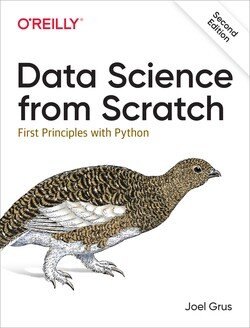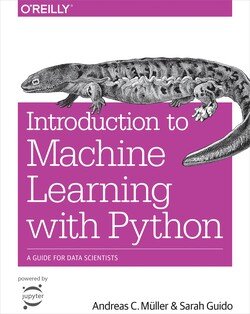Three books about machine learning
/I recently finished a Udemy machine learning course, and wrote on LinkedIn afterwards: “While I am no [machine learning] expert, this is one step on the way to better skills with [Python]”. So which other steps have I taken along that route to learn more about machine learning?
Here I share my thoughts on three books; two of which I have read cover to cover, and the third which I can hardly put down! When students in our machine learning class ask about books, these are the ones we recommend.
The Hundred-Page Machine Learning Book
Andriy Burkov (2019). Self-published, 141 p, ISBN 978-1-9995795-0-0. List price USD35. $30.83 at Amazon.com, £25.27 at Amazon.co.uk.
Andriy Burkov states right at the start that “[This] book is distributed on the read first, buy later principle.” That is the first time I’ve seen this in a book despite the fact you can try a car before buying or visit a house before taking out a mortgage.
This was the first book I read that is fully dedicated to machine learning. I knew a little about the topic beforehand, but wasn’t yet ready to use any machine learning algorithm at that point, so this was a perfect introduction to the what, the why and the how of machine learning. The mathematics are introduced and explained in a way that is accessible without being overwhelming, although I acknowledge that this is of course a very subjective comment.
When I turned the last page of this book (and there are a few more than 100), I was even keener to explore further, and I still refer back to this book when I want a quick summary of a machine learning concept.
Data Science from Scratch
Joel Grus (2015). O’Reilly, 311 p, ISBN 978-1-492-04113-9. List price USD 41.99 at O’Reilly. $38.85 at Amazon.com, £27.56 at Amazon.co.uk.
I read the 1st edition of this book, which uses Python 2.7 but often refers to Python 3.4; the 2nd edition (2019) uses Python 3.6 throughout.
Joel Grus, of Ten Essays on Fizz Buzz fame amongst many other achievements, has a knack of breaking problems down to their constituent parts and gracefully rebuilding a solution. While I sometimes struggled with the level of mathematics he’s comfortable with, I never felt that I couldn’t follow his journey. This book really gave me the sequence of steps in data science, and a fantastic resource to refer back to whenever an algorithm seems too opaque to me.
Introduction to Machine Learning with Python: A Guide for Data Scientists
Andreas C. Müller and Sarah Guido (2017). O’Reilly, 384 p, ISBN 978-1-449-36941-5. $40.00 at Amazon.com, £31.45 at Amazon.co.uk
At the time of writing I am halfway through this book but I’ve already gone through Chapter 2 twice: once with the book and a second time to practice with different data sets. This is symptomatic of my experience with this book so far: it’s totally addictive. Tremendously well explained, building on the power of Jupyter notebooks thanks to all the code being available on GitHub, always explaining and illustrating the effects of only the important hyperparameters in each algorithm — this is fast turning into my go-to companion for machine learning.
If you only buy one machine learning book, or don’t know where to start, this is probably the one to go with.
We all have different technical backgrounds and abilities, and as mathematics figures prominently in the implementation of all machine learning solutions, it’s not the most approachable of subjects. I’d love to hear your comments about books you would recommend to other scientists getting started in machine learning.
These prices are Amazon's discounted prices and are subject to change. The links contain a tag that earns us a small commission, but does not change the price to you. You can almost certainly buy these books elsewhere.
The images on this page are copyright of their respective owners and are used here in accordance with fair use doctrine.












 Except where noted, this content is licensed
Except where noted, this content is licensed